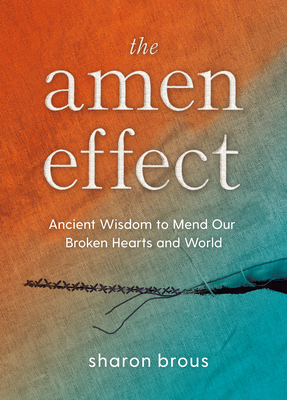More on this book
Community
Kindle Notes & Highlights
by
Sharon Brous
Read between
May 26 - June 15, 2025
Given our faith and history, who are we called to be in this time of moral crisis?
Two thousand years ago, the Rabbis constructed a system of ritual engagement built on a profound psychological insight: when you’re suffering, when your loved one hovers between life and death, when you feel hemmed in by the darkness, when all you want is to self-isolate—because who would understand anyway?—you show up. You root your suffering in a context of care.
You show up for the celebration, and you show up for the funeral. Err on the side of presence.
“anyone who destroys even one life, it is as if that person has destroyed an entire world. And anyone who saves a single life, it is as if that person has saved an entire world.”
What would it mean to build a society in which every person is treated as an image of the Divine?
What is your soul calling you to do? What is the mission, the meaning, only you can fulfill? Where have you hidden away your most profound desires and aspirations? Can you unearth them? Most importantly, how are you actively thwarting their accomplishment? . . . We so assiduously sabotage the very thing that would bring us the most satisfaction: “I can’t now . . . I’m too busy . . . It won’t work . . . I have to . . . I can’t.”
When I realized that nearly all of the great agents of social change were fueled by their faith, by a desire to lift up all people as images of the Holy One.
Dr. Howard Thurman said, “Don’t ask yourself what the world needs. Ask what makes you come alive, and then go and do that. Because what the world needs is people who come alive.”
even in the deepest suffering, there is still joy. To be alive is to see that this world overflows with blessings. Even here, even now. You grieve, and you live.
Grieve deeply, and leave room for the light. Celebrate wholeheartedly, but always with humble awareness of where the pain lives.
“Resilient people get that shit happens,” she writes. “They know that suffering is part of life . . . part of human existence.”
Even when you’re rejoicing, you should tremble a little. Be careful not to lose yourself, by disconnecting from the web of humanity that lives and dies, loves and loses, suffers and sometimes finds solace.
My friend, Rabbi Shai Held, calls this “the very essence of Torah. A God of love and kindness who calls Israel to love and kindness.”
I will not allow my life’s light to be determined by the darkness around me. —Sojourner Truth
I hear in his request an aching vulnerability: I need you to show me that even after the long, dark night of struggle, even when the battle has left me broken, physically and psychically, some gift will come with the new dawn.
I don’t believe in a God who makes us hurt so we can learn life lessons. And I really don’t believe in a God who makes other people hurt so we can learn lessons. But I do believe that we have the opportunity, after every struggle, to orient toward the blessings. There is always something to learn, some way to grow.
We don’t need to offer the perfect mix of wisdom, consolation, and inspiration. We just need to show up and make space for something holy to flow through us.
“Is the darkness welcome to you? Does it bring you comfort? I can sit here with you, or I can try to accompany you out.”
When someone engages in deeply inhumane behavior, we start to think of them as not human. We call them monsters, and we stop wondering what makes it possible for a person—somebody’s child, parent, or lover—to perpetrate an act of cruelty or violence. Instead, they become some otherworldly creature. An anomaly. This is a form of self-protection, but at its heart, it’s denialism. It frees us from seeing that there can be cruelty in us, too. And it keeps us from actually addressing the societal factors that make it possible for people to perpetrate terrible acts of violence.


